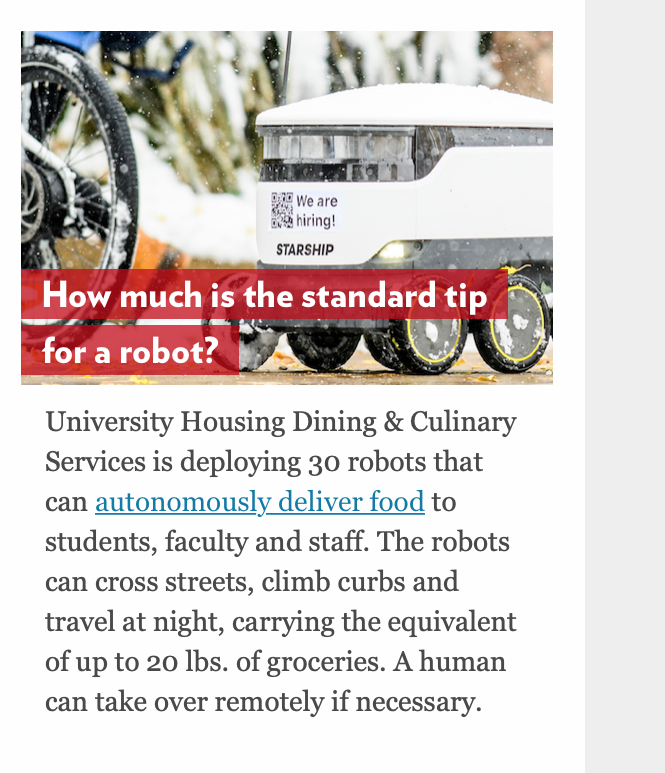{submitted to the editorial staff at University Communications}
I appreciate innovation as much as the next person; and, I appreciate a witty headline. But, the two collide when one chooses humor over acknowledging impact – especially upon some the more vulnerable among us.
Such a collision happened recently when the INSIDE UW newsletter ran a link to the news story “University Housing Launches New Starship Robot Delivery Service” under the linked headline “How much is the standard tip for a robot?” Now, again, I understand the tongue-in-cheek reference here – but I wonder does your staff understand the real and present threat that technological innovation presents to low-wage workers?

Tipping itself is already an under-appreciated facet of service work – as a former waitstaff, I continue to be astounded how many people still don’t understand that the people who wait on you in most restaurants make far below minimum wage per hour and are taxed at 15% of their sales REGARDLESS of how much they actually earn in tips.
This smug headline did nothing to prevent further marginalizing this issue by inferring that everyone benefits from a world where things will be done for us without having to pay a gratuity. Far from it; those who manufacture and sell these machines, and those companies that deploy them because of the advantages of not having to pay workers (or their health insurance) – not to mention the ability to do transactions online and never having to deal with face-to-face interactions with customers (heaven forbid!) are the ones who stand to benefit.
I understand the development of autonomous machines is an important technological advancement; robotics have brought some incredible benefits, and self-driving machines have taken on some of the burden of going into dangerous and even hostile environments, sparing the risks to human life.
But food delivery is not one of those situations. Waitstaff and other service workers are often those living at the lower end of the economic scale. And since such jobs are often a first job during high school, college, or directly after graduation, this population includes the very students whose welfare Starship Technologies claims to have in its best interest.
As for the $40 million dollars of venture capital that Starship has raised, which has given them access to this, and about a dozen other college campuses, I have to wonder what other, innovative solutions they might come up with to address food distribution inequities, wage issues, and poverty. But clearly they’re focused on sky-high returns for their investors, not practical issues here on planet earth. How’s that for a witty closing?
– Stephen Montagna
Madison, WI
UW grad class of ’94
